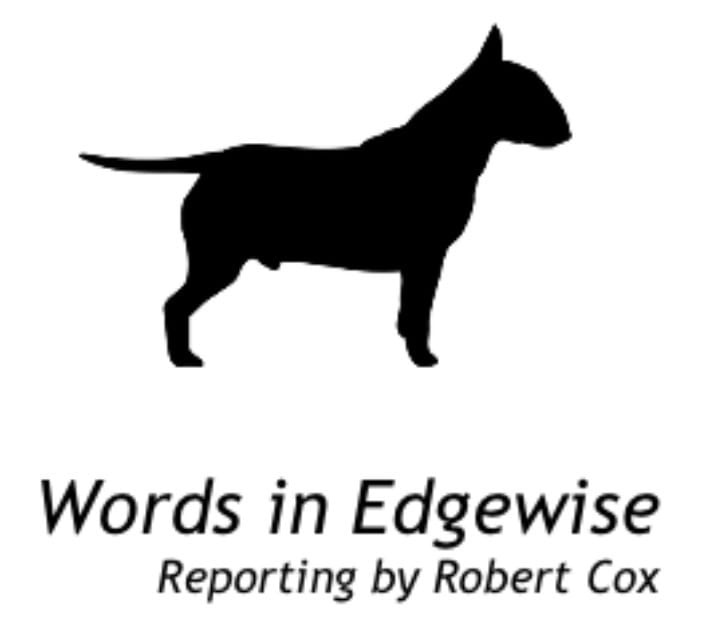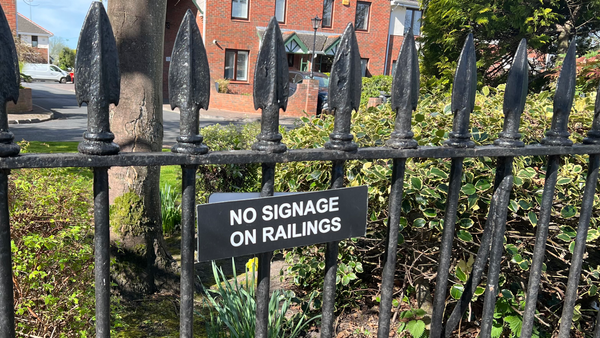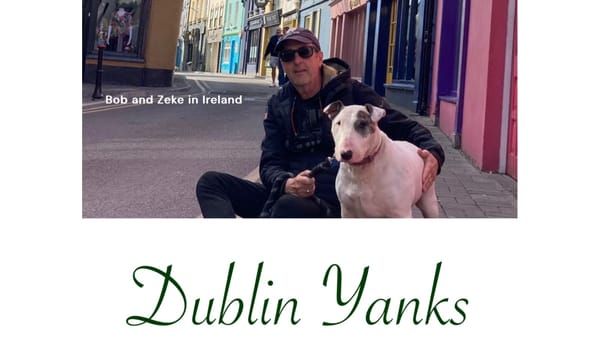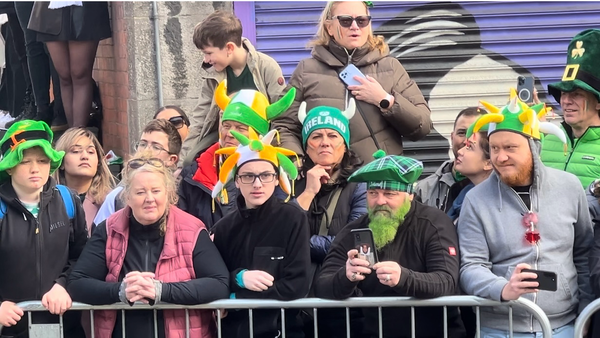The Noam Bramson Ethics Transcripts Part VI: Noam Eats a Cucumber

NEW ROCHELLE, NY (August 16, 2022) -- On April 8, 2022, Council member Ivar Hyden testified in the Noam Bramson ethics investigation.
When asked about the Mayor raising the idea that the next City Manager should come from the non-profit sector, he took it as a jumping-off point to unburden himself about his disappointments and frustration with Noam Bramson.
He testified for over 10 minutes, with only a few brief interruptions.
What follows is his testimony without comment, exactly as it appears in the transcript, in sequence, with only the addition of a few topic headers to make it easier for readers to follow.
Thank you for reading Words in Edgewise. This post is public so feel free to share it.
Noam and his political career path
HYDEN: I've always found it difficult to operate within the political sphere than try to be straightforward and speak truth to my constituents and to other people of, you know, the political powers that be, and that's what it's about for me. And I've been very disappointed on occasion with my own party, with the nature of things, how the political system works in this country, especially now, but still hopeful that if the right people involved, there is some hope for making things better, you know, going forward. So -- and I've always found Noam to be -- pay lip service to the same ideas, but very political, you know, very involved in his own -- in his own political future, which I respect 'cause that's the career path that he chose for himself. I have supported him. I supported him for his -- you know, in his runs for mayor and for county exec. But there have been times when I've been very disappointed in his actions and behaviors.
Words in Edgewise is a reader-supported publication. To receive new posts and support my work, consider becoming a free or paid subscriber.
Noam and his waterboard
HYDEN: ...the first I saw something that was really shocking was I think it was maybe my second year on council when we were debating the forest city project at that time. And it was a really ugly event that transpired during those meetings where Noam be behaved really inappropriately, and I was shocked to see it. I had no idea that he -- there was a side of him that I had never seen before. And I remember reacting to that viscerally at the city council meeting that night and saying that I refuse to be bullied by the mayor and anybody else. And, you know, ultimately, his forest city project was shot down, and he was incredibly vindictive about that -- not with me 'cause I think I was too popular, but with Shari Rackman, who he deliberately went after in the next election, handpicked a successor, worked for that successor and made sure Shari was -- you know, never got to see office again in New Rochelle simply because she voted against something that he really wanted. And I was shocked by that. I was really shocked by that. I did not know him to be that character, but then again, it's politics. So, you know, I'm -- I've been disappointed often with politicians of all different shapes and sizes. But that was really shocking, and I still remember that sitting here. And the sound room was in there, and Noam took her in there, locked the door and screamed at her, and we could all hear it. And it was just the most inappropriate thing, I think, that I have seen. So there are different sides to him as a character.
Noam and an unavailable job
HYDEN: Whether this particular thing rises to the occasion of whatever -- I don't know. I don't know how to -- you know, it's up to you to decide what this is really about. What I still don't understand is where -- why did he even pursue this knowing that this is in violation of the charter? There's no way Chuck could give him this job. It isn't going to happen. He can't do it, period. So why continue to pursue this? And I don't know the answer to that. I really don't know the answer to that. Maybe I've overstepped here.
Q. No, you have not.
HYDEN: I'm talking about my personal —-
BLUMENTHAL: ...we had some information that Adam's job pays at least double what Noam's job pays right now.
HYDEN: Yeah.
MR. BLUMENTHAL: Could that be a motivation? And I'm not saying
it's justification but a motivation.
He's got kids who are, what, college age?
HYDEN: You know, I've heard that. Okay? Actually -- actually, a major player in the Democratic party said that to me on Sunday 'cause we were talking about this, and I said I don't understand it. And he said, "Well, maybe that's the -- maybe that's the motivation." But I don't buy that. I honestly don't buy that. I think, from what I understand -- and I don't know Noam's personal financial situation -- his wife has an excellent job, makes a very good -- you know, very good income. Noam's still making 110,000 or whatever it is. The house is paid for, I'm sure, because they've been living there for a long time. I can't imagine that it's just about making another hundred thousand dollars a year. I mean, I don't -- I don't think it's about that.
Noam and his ego
HYDEN: I think it's more about ego. I think it's more about ego and his narcissistic streak. He always seems to feel that he can slide on everything. There have been other incidents over the years that are, you know -- but I think it's more about ego.
Noam and his corner office
HYDEN: The other thing he said to me at that other meeting in January -- 'cause I -- the last several years, every time I have these meetings with Noam, I've said to him, "Do you really plan to die in this corner office?" I said, "You've never had a job in your adult life except city council mayor of New Rochelle. You've never gotten up and gone to work 9 to 5 ever in your entire life. But you're smart, and you're capable, and you're verbal, and you're a policy wonk, and you love this stuff. Go get a job with a think tank. Go get a job with, you know, any number of different -- where your skills would be really beneficial." I mean, he's a very smart, capable guy. And his answer to me was always, "No. I want to stay here in New Rochelle. I want to stay here in New Rochelle." And it was the same thing this January. I said, "Are we really going to go through this again?" I said, "I'm going to tell you the same thing I tell you every year. You're going to die in this corner office. Get out of here. Do something else. You're now in your early 50s, you know? You still have an opportunity to make a life change." "No. I have to stay here in New Rochelle. I want to stay here in New Rochelle." So if you combine the fact that he wants to stay in New Rochelle, and maybe he needs to make more money or maybe he feels he stayed too long in the trough in terms of getting re-elected -- I don't know. Maybe that combination is just, you know, "I want to stay here. I want to stay in this building, which is the only place I've ever worked." And that can be scary. You know, that can be scary if that's all you know. "I want to stay here, and I want to have a position of power where at least my ego is assuaged in some fashion. And as commissioner of development, I have a lot of stuff that I can say, 'Look what I've done, and look what I'm doing.'" Or the city manager job for that matter. I really don't know. I don't know what his motivation really is, and that's the thing that I don't understand is that you're too smart. You know that you can't get this job, so why on earth are you continuing to pursue this? It just doesn't make sense to me, you know? Really, he knows. He knows the charter, I'm sure, better than I do. You know, this is the stuff that he loves. It makes no sense. It makes no sense. There are certain things that, you know -- there is something about Noam that I've never fully understood, and I've never been able to get close to him. I think for sure after the forest city thing, he always hated my guts for voting against that project 'cause it was Shari and I that killed that project. And now in retrospect, I have to say we are a hundred percent right 'cause everything we're doing is way better than that project. So I don't know. I don't know what really, really drives him.
Noam eats a cucumber
HYDEN: I'll tell you another thing that I always found very strange. At the first city council meeting of every month, we start at 3:30 or 3:45, and then we do the city business. We have a dinner break, and then we have citizens to be heard or public hearings right after the dinner break starting at 7:00. All of us -- all of the members of council -- Chuck, staff -- we all sit and eat dinner in the development council room at the big table -- right -- and this has been kind of traditional for many, many, many years. We all sit, we all talk about all the regular stuff that people talk about. We talk about -- you know, the guys are down at one end talking about the football games and the basketball games or whatever is going on. The women are sitting at the other end, and they're talking about the things that interest them, which I always find -- there's very little interaction, which I always find kind of weird 'cause I'm more comfortable with women talking about that stuff than I am with guys talking about basketball games. But anyway, the curious thing about this is -- and it's a nice break because we all get to know each other a little bit, and we get to talk about just the dumb ass everyday life kinds of stuff, not city business. Noam never attends those dinners. All these years, he's the only one who doesn't -- who doesn't eat with us. And I asked him after a year or two at one of these meetings; I said, "Listen. You know, I think it would be nice if you ate with us because it's kind of a congenial thing to do. You know, we all get to know each other a little bit, and I think it's a little off-putting for people that you don't do this." "Oh. I never really thought about it." And often, he would be eating dinner alone in his office -- in the mayor's office while we're all doing this. Occasionally, we'd go home, but in the early years, he'd be sitting in the mayor's office eating dinner by himself. And I'm thinking -- so finally, the next time, he actually came, and he actually picked at some salad and had a cucumber or whatever. Stayed maybe 15, 20 minutes and then left and went back to his office or whatever. And I think that was -- maybe one other time he came. But to me, that was just indicative of this person who's separated in some way from normal interaction within a group kind of setting. You know, there might be -- there might be things that we feel differently about or whatever when it comes to the city. But at least there was this group feeling that we needed to, you know, be congenial, work together, create the kind of atmosphere that's been official to get things done. He hasn't participated in that. I always found that really curious. It's just curiosity. So I don't mean to psychoanalyze him, but there is something there that I don't fully understand, and it's -- for me, it's always been a bit troubling over the years.
Noam as strong mayor
Q. Your feelings are relevant because, as I'm sure you noticed, one of the very first allegations that Robert Cox made was that this was part of a rather involved effort to destroy this council manager form of government.
HYDEN: Well, I had heard -- as I said, I've heard for a couple of years that Noam was considering a referendum to change the form of government. But I do believe that he did his polling or whatever he did, and discovered that the citizens of this city were not going to support that, especially if he was the one bringing this forward because I think -- I mean, all of this stuff is rather obvious to people. I mean, I don't understand why you would think that it wouldn't be obvious, that this is just a power move; right? So he dropped that. I never heard any serious consideration of that after maybe two years ago, something like that. So I don't think it was a -- I don't think he saw a clear path by doing that, and perhaps that's the reason that some of this other manipulation happened. But I don't know because, again, it flies in the face of the charter. You can't do this, so why would you pursue this? I don't know. I don't know.




